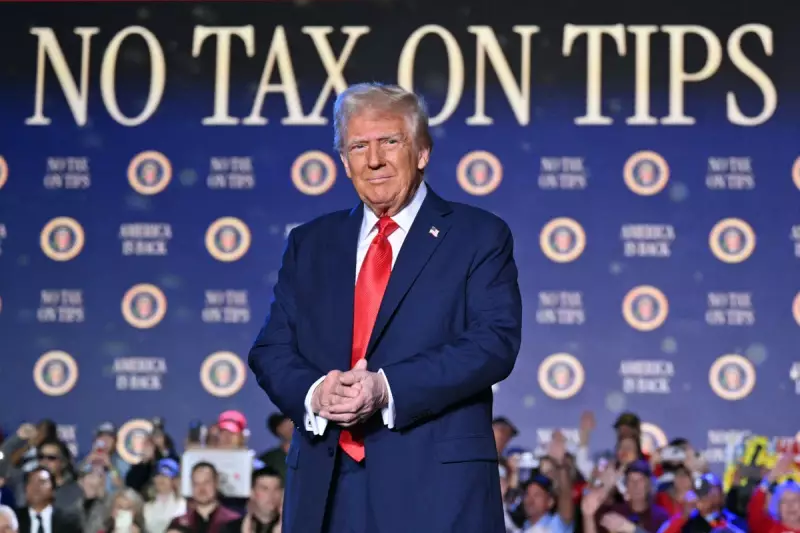
In a strategic pitch aimed directly at America's vast service industry, former President Donald Trump has made a striking new campaign promise: to eliminate federal income tax on tips for millions of workers.
The pledge was unveiled during a rally in the key battleground state of Nevada, home to the hospitality-centric city of Las Vegas. Addressing a crowd of supporters, Trump declared his intention to enact the change "right away" if he wins November's presidential election.
A Direct Appeal to a Key Demographic
This policy proposition is seen as a direct appeal to workers in hotels, restaurants, bars, and other service-sector roles who rely heavily on gratuities to supplement their often low base pay. The move could potentially put more money in the pockets of waitstaff, bartenders, casino workers, and delivery drivers across the nation.
"For those hotel workers and people that get tips, you're going to be very happy," Trump told the audience. "Because when I get to office, we are going to not charge taxes on tips... people making tips are going to be very happy."
Nevada: A Key Political Battleground
The location of the announcement was no coincidence. Nevada's economy is heavily reliant on tourism and hospitality, making tipped workers a significant demographic. Winning the state is crucial for any presidential candidate, and this policy is widely interpreted as a clear attempt to win over these voters.
The promise adds a significant new plank to Trump's economic platform, setting a clear contrast with President Joe Biden ahead of their anticipated election rematch.
Questions of Implementation and Impact
While the proposal was met with cheers from the rally attendees, it immediately raises questions about its implementation and fiscal impact. Abolishing federal income tax on tips would require approval from a often-divided Congress, a challenge any president faces with major legislative changes.
Economic analysts will also be scrutinising the potential effect on government tax revenues and whether the benefits would truly reach the workers themselves. Despite the questions, the pledge underscores the intense competition for every voting bloc in what is expected to be a tightly contested election.





